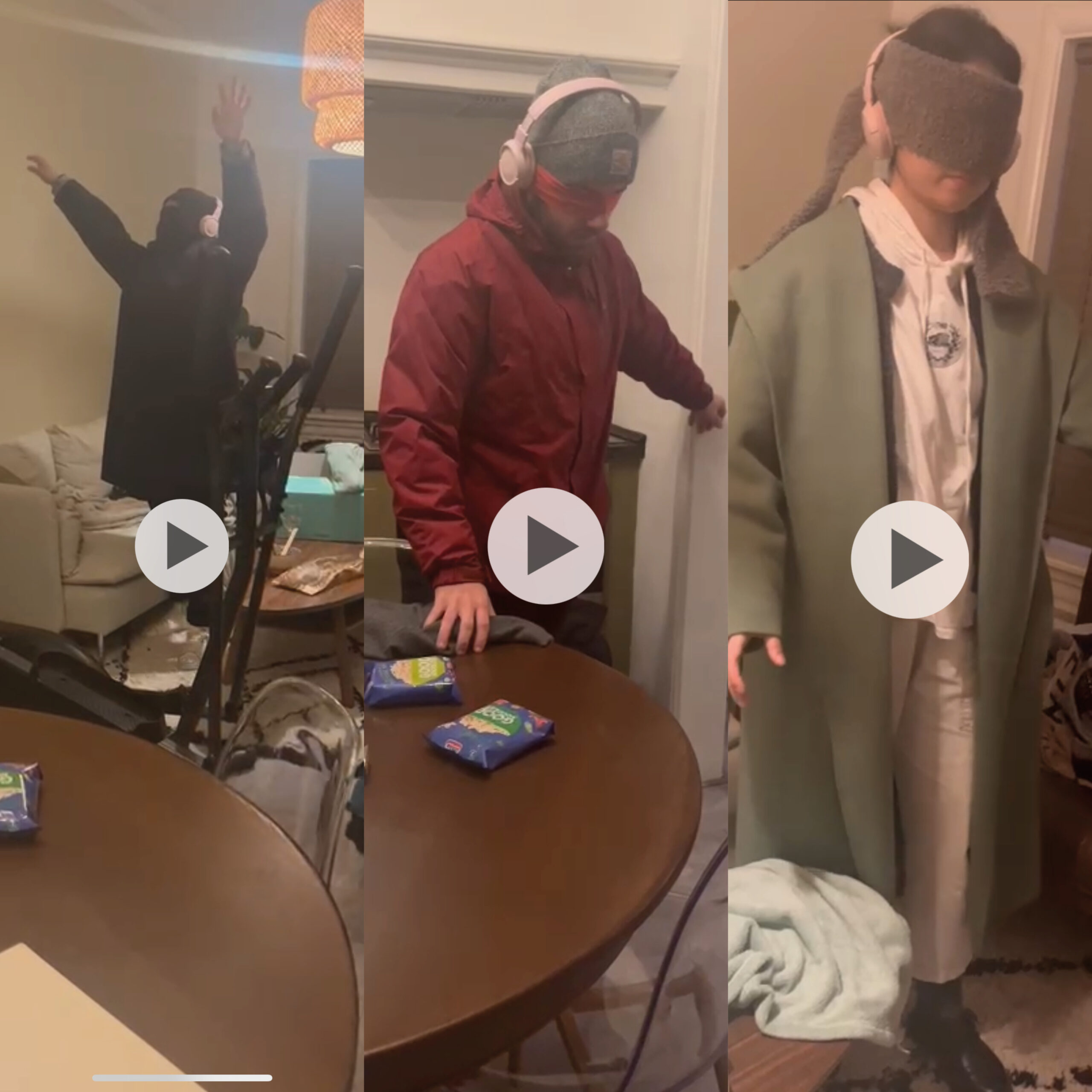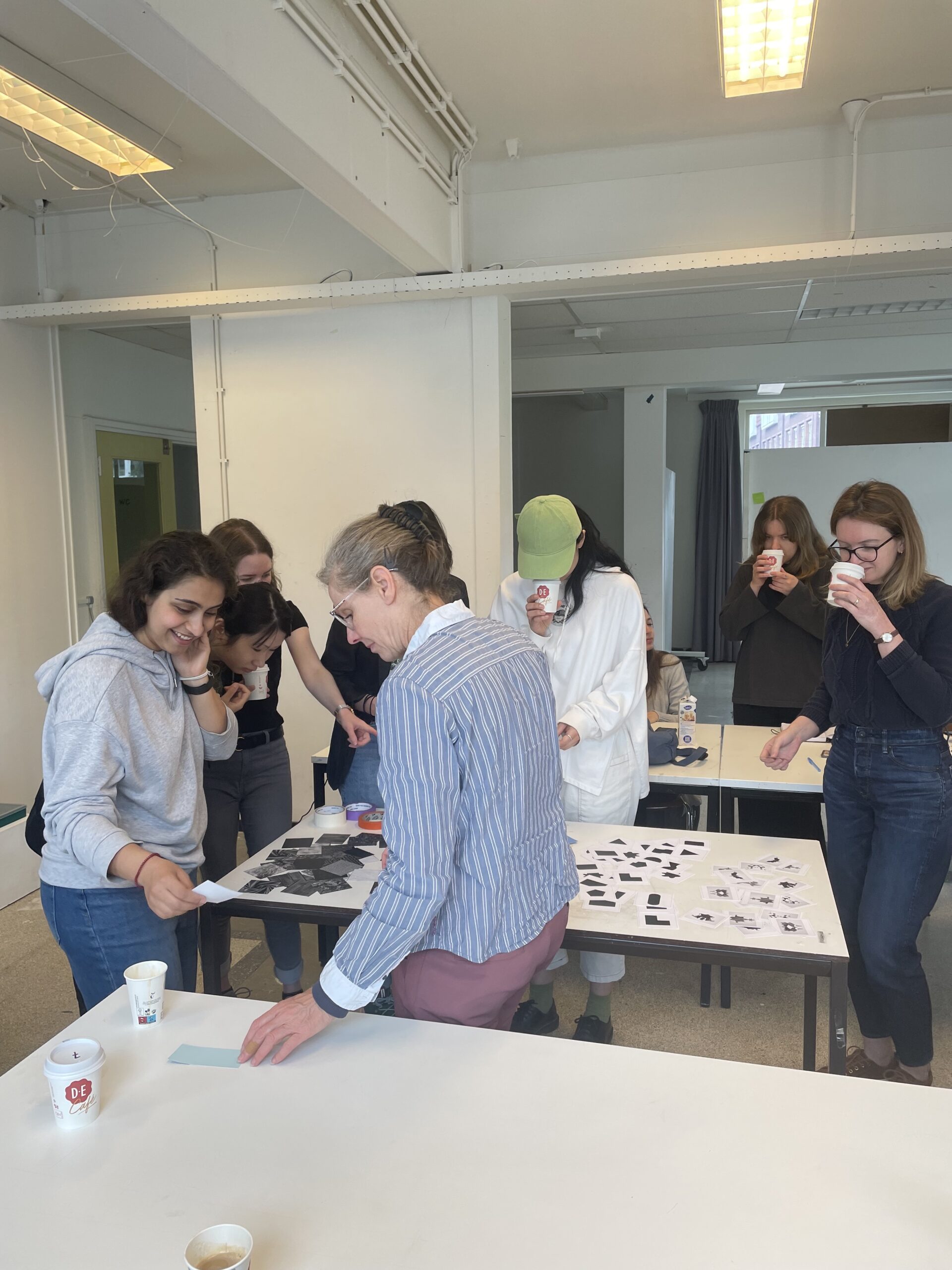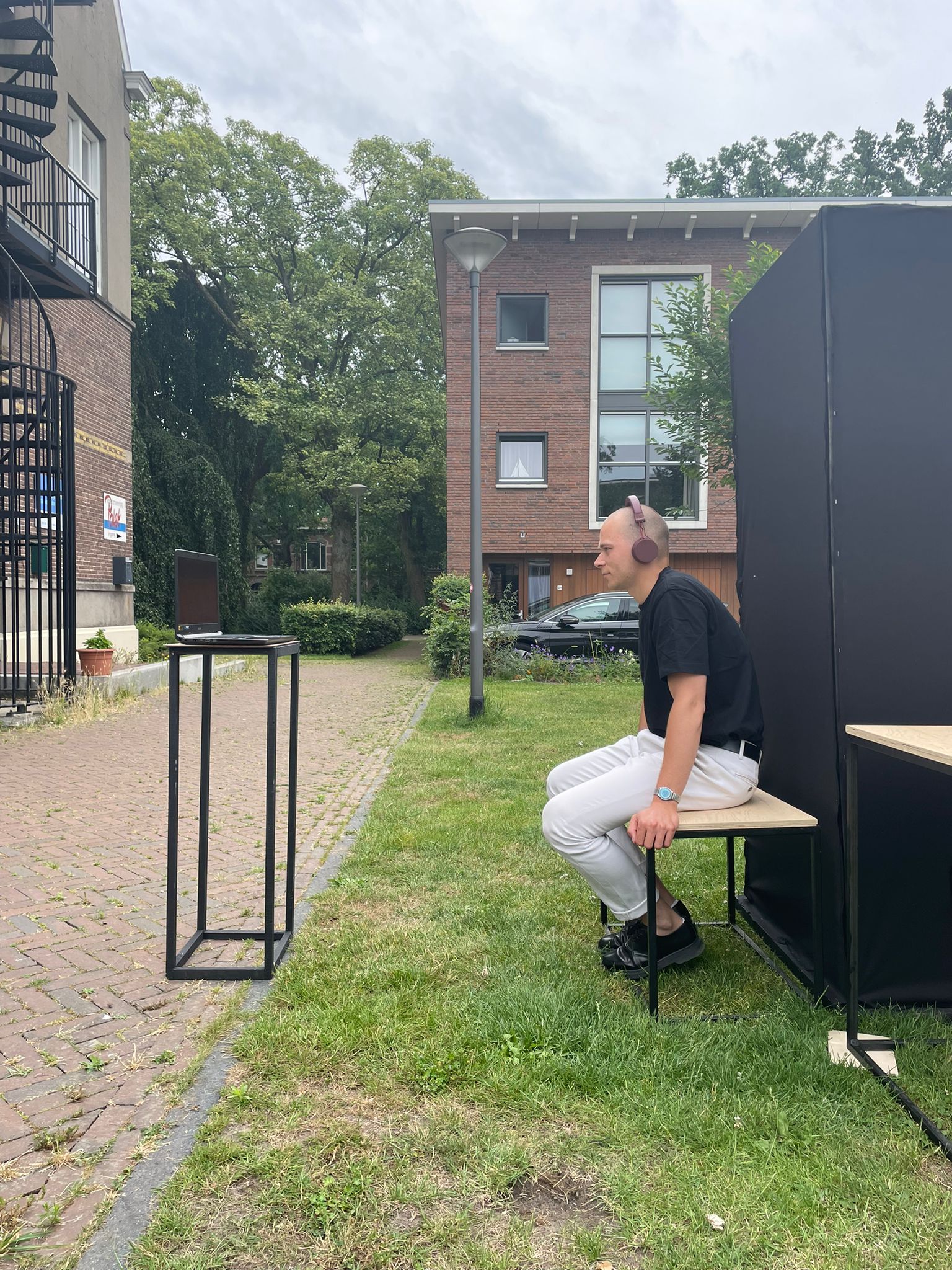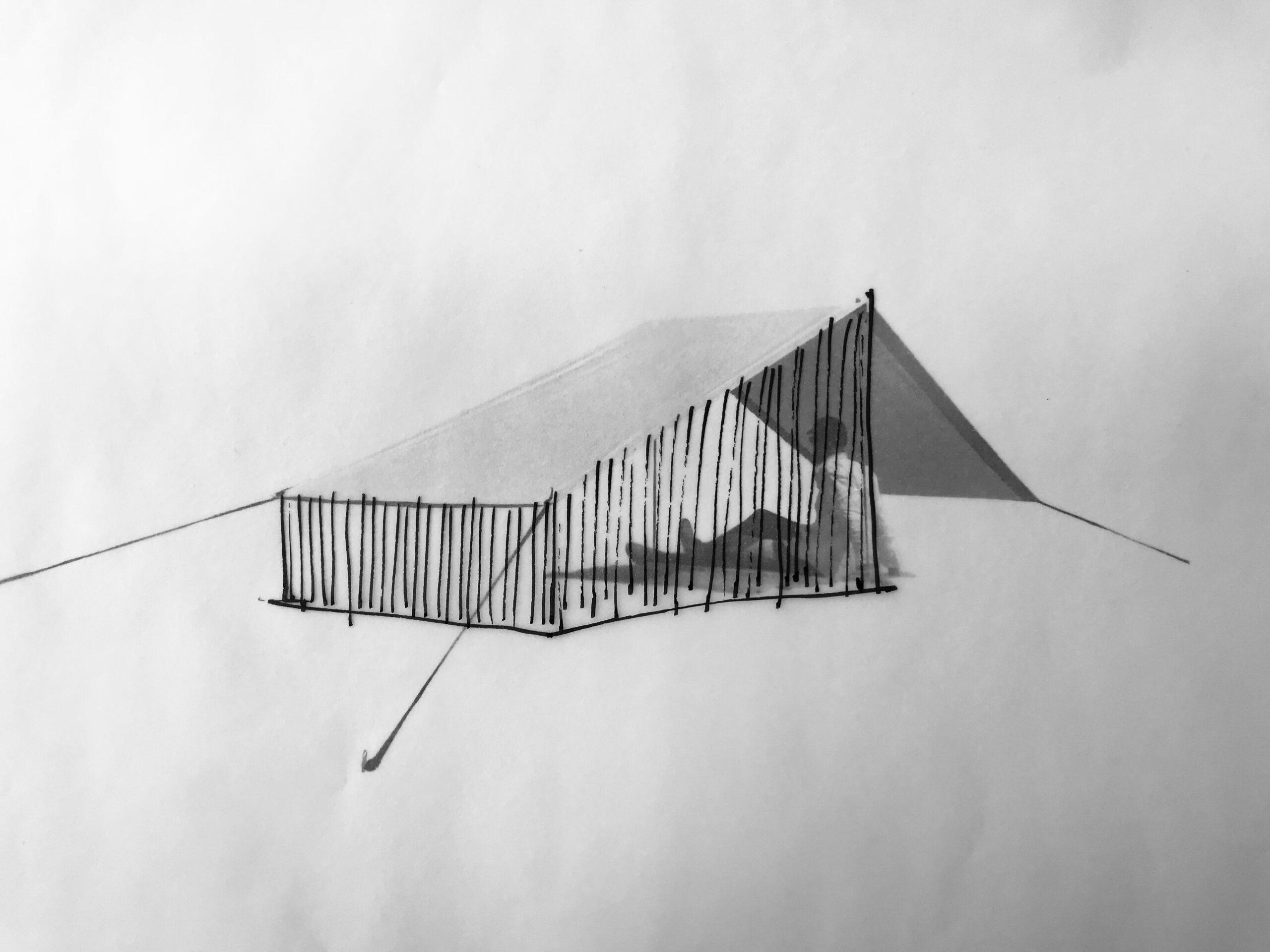Introduction
We delved into the realm of smell and scents, exploring the unique concept of ”the aroma jockey”. Inspired by the pioneering work of Erich Berghammer, the inventor of scented clubbing, we set out to investigate the integration of scents with sound. Our research involved attending one of Berghammer’s performances in Oranjewoud, where he expertly manipulated scents to evoke specific emotions and enhance the performance of a classical music piece. After the performance, we had the opportunity to visit Berghammer’s studio in Amsterdam for an insightful interview, delving deeper into his creative process and the impact of scent on the body and mind.
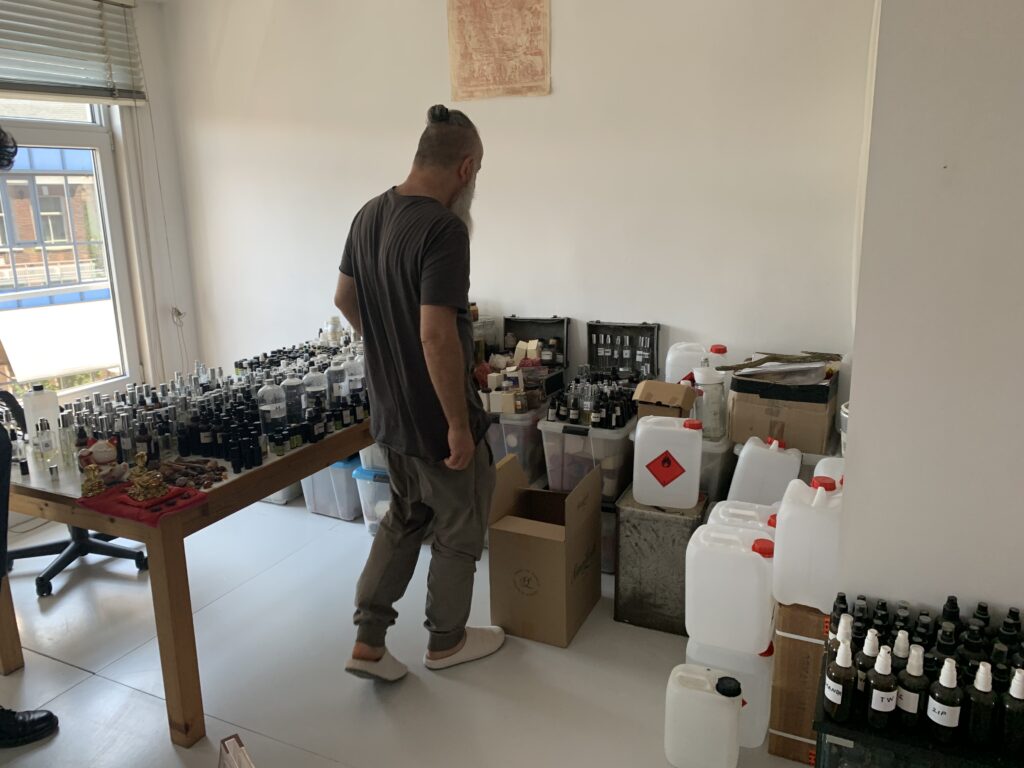
Q. Do you think scents are connected to power?
“Well yes, because it’s basically hacking brains right. You can manipulate people with smell. As an aroma jockey, I also feel powerful while performing an act with scents. Specific scents are connected to specific emotions or moods, I can let people feel a certain way. Nevertheless, a connection between power and smell was already made way earlier in history. When we were still caveman, smell was always connected to the gods. A specific smell symbolized their power and the fact that, for example, a storm was coming. Later in history, the Romans used to perfume their sails when they entered a haven, here it was a sign of luxury and wealth.”
Q. Do you have a system or classification for smells?
“In my practice, I combine scents with sound. The connection between these elements is the fact that scent and sound are perceived in the same part of the brain. Here, emotions are created. Meaning, if you close your eyes, you perceive much more intense sound and smell. There is an octave of smell, just as you have an octave of sound. But there are also smell-octave-of-color and smell-octave- of-emotion. For example, in ancient China, people connected certain sounds and colors to certain scents. This goes from up to low. For example citrus has a very high-pitched scent and harmonizes with bright colors and high-pitched sounds. The lower in the earth you go, the darker the colors become and the more low-pitched sounds you encounter. This principal is also known as smound.”
Q. How did your concept as an aroma jockey start?
“So, it’s live perfuming according to an action or a music piece that happens on stage. It can be a presentation, a concert or a festival. I connect certain scents to the performance that is happening. In ancient times people used this principal too, especially during the first theatre festivals in Greece. They are known for the first (officially recorded) scent performances, where they used smell to create an atmosphere that would back up the story that was being told. It was unimaginable that smell wouldn’t be a part of theatre at that time. For example, they used burned flesh and blood when performing an act about war. As an aroma jockey, I use the same principals to create a certain atmosphere during my performances.”
Q. Do you see a connection between smell and space?
“Personally, I mostly connect smell with nature. But, in a way everything is connected, of course I use different scents for different settings. When I still used to do festivals, I would use simple scents such as pure bergamot, pure mint or some cinnamon. The kind of scents that give a lot of energy and make people happy. And when I perform for classical music, I focus way more on translating the music that is played. I have this octave of smells in my head that are connected to certain themes, emotions and sounds. I would say that in my practice, I see a connection between smell and atmospheres. For example, I produced a perfume for a company that sells clothing for motor bikers. Here, I combined three scents: the scent of lemongrass, which gives a feeling of adventure, a hint of patchouli, to represent the leather suits and finally the fuel-like scent of Styrax. All of this combined, gives people an impression of the atmosphere of the company.”

